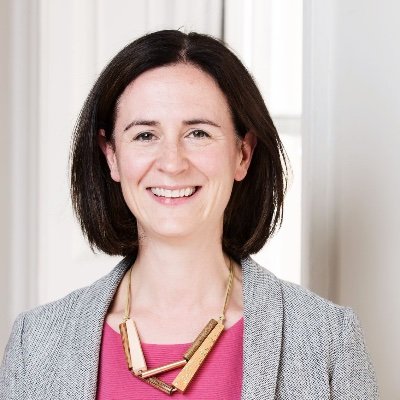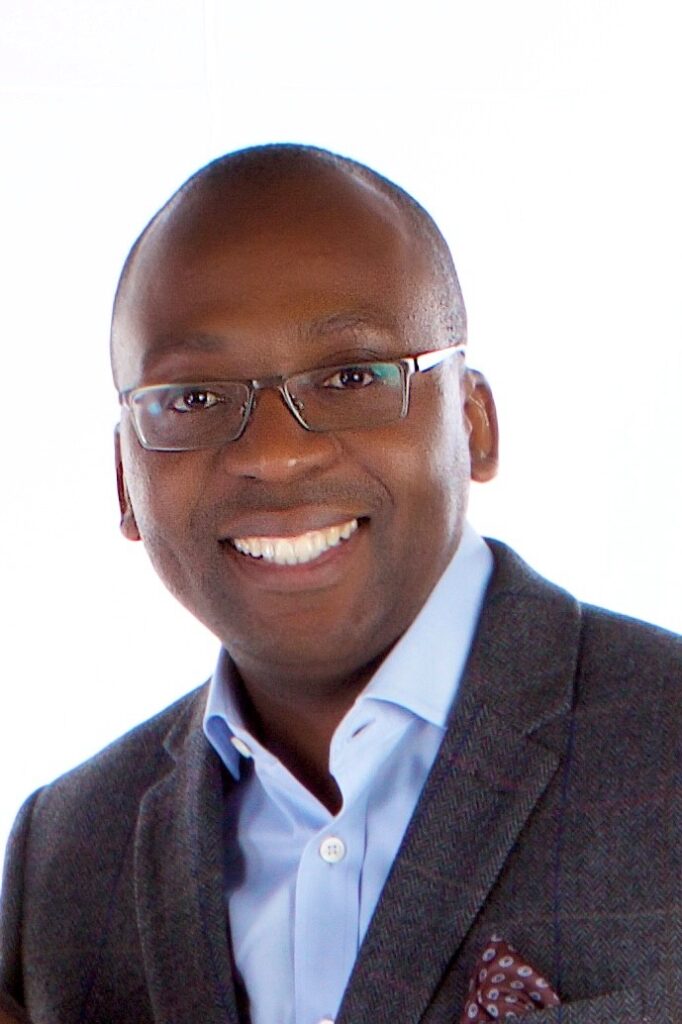Enabling NeuroDiverse Inclusive Science Careers
Date: 31st May 2022
Recommendations for how to make science careers more inclusive for neurodivergent researchers.
Date: 31st May 2022
Recommendations for how to make science careers more inclusive for neurodivergent researchers.
Anjali Mazumder is the Theme Lead on AI and Justice & Human Rights. Her work focuses on empowering government and non-profit organisations by co-designing and developing responsible and inclusive data and AI methods, tools and frameworks for safeguarding people from harm – particularly those most vulnerable, building resilient institutions and systems, and accelerating the opportunity for inclusive, fair and just services, systems, economies, and communities. She is passionate about fostering multi-disciplinary collaborations and multi-sector partnerships to co-create pathways for innovation that improves services, policy, and actions to safeguard human rights and address humanitarian challenges. Her research interests are in developing integrated Bayesian decision support systems to manage uncertainty with complex data structures, value of evidence, causal reasoning in the wild; expert judgement; detecting bias and algorithmic fairness; socio-technical solutions to harnessing multiple disparate sources of data whilst enabling responsible and inclusive data and AI principles and practices; communicating uncertainty and risk; and safeguarding rights and the Rule of Law.
She has over 15 years’ experience tackling fundamental statistical problems of societal importance – human rights, justice, security, the Law, education, public health & safety – working at the interface of research, policy and practice in the UK, the US, and Canada, fostering multi-disciplinary and cross-sector collaborations. She was appointed to Canada’s National DNA Databank Advisory Committee (2012-2018) and currently serves on the UK Forensic Science Regulator’s fingerprint interpretation subgroup, and the senior management board of the UK’s Policy and Evidence Centre for Modern Slavery and Human Rights. She has also served the Royal Statistical Society in a variety of ways, most recently appointed to the Statistics & Law Section and the Data Science Section committees. She holds a doctorate in Statistics from the University of Oxford and two masters’ degrees in Measurement and Evaluation, and Statistics from the University of Toronto.
Polly Williams is Head of Diversity & Inclusion at The Law Society. She’s also a Trustee at the MS Society (Multiple Sclerosis).
Prior to joining The Law Society, Polly was Head of D&I at the Royal Academy of Engineering, and Head of Scientific Programmes at The Royal Society.
Abigail is Professor of Sociology and Social Policy at the University of Lincoln (UK), where she is Director of Research in the Eleanor Glanville Institute, a hybrid institute focused on equality, diversity and inclusion.
Abigail is an expert in the gender division of labour (in the home and workplace), with a particular focus on gender in male dominated occupations, such as construction and engineering; youth studies; financial wellbeing; and complex evaluation and impact measurement.
Abigail has over 15 years’ research experience working at the intersection of academia and industry. Abigail has worked with industry, government and NGOs, including research and evaluations for NSW Health, NSW Commission for Children and Young People, beyondblue, headspace, Australian Department of Immigration and Citizenship, Diversity Council Australia, NAB, Macquarie Group Foundation and the Australian Human Rights Commission.
Dr Felix Oppong earned his PhD from Western University in London, Ontario, Canada, studying the microstructure and rheology of complex (non-Newtonian) fluids.
Felix has spent the last 15 years in Unilever’s research & development department, studying rheology (study of the flow of matter, primarily in a liquid or gas state – e.g. polymers, bodily fluids, ketchup).

Dr Jackie Maybin
Reader and Consultant Gynaecologist, Centre for Reproductive Health at
University of Edinburgh & NHS Lothian
In her clinical role, Dr Jackie Maybin runs a specialist menstrual disorders service offering medical and surgical treatments. Her research team aims to develop better preventative and therapeutic strategies for problematic menstrual bleeding, a common and debilitating symptom. Currently, she holds a Wellcome Clinical Career Development Fellowship to investigate the role of hypoxia in menstrual physiology and pathology. She is also examining the potential link between COVID and menstrual disturbance. She sits on the Editorial Board of Reproduction, Journal for Endometriosis and Uterine Disorders and Physiological Reviews. She is president of the RCOG Blair Bell Society, a member of the Royal Society of Edinburgh’s Young Academy of Scotland and Chair the National Menstrual Clinical Network for the Scottish Government.
Dr Omar Khan has a DPhil from University of Oxford in Political Theory.
Omar is Chief Executive Officer of TASO – Transforming Access and Student Outcomes in Higher Education. Omar has led TASO’s transition into an independent charity, developing its team and strategy to widen participation in higher education and eliminate equality gaps between students. His research and professional background has focused on equality and social mobility, particularly in education and the labour market, and he regularly speaks on these topics in the UK and globally.
Omar holds several board advisory positions, including chair of the board of trustees of Trust for London, trustee of the Political Studies Association and the Barrow Cadbury Trust. Omar has previously been a board or advisory group member at the University of East London, the Financial Inclusion Commission, the Department for Work and Pensions, the 2021 REF and 2014 REF assessments, and a 2012 Clore Social Leadership Fellow.
Omar joined TASO from race equality think tank the Runnymede Trust, where he had been Director since 2014.
Victoria Jones graduated from Keele University in 2013 with an LLB in Law with Politics. Since then she has worked at a number of unions, including 7 years at FDA as National Officer.
Prof Tanvir Hussain received a PhD in Materials Engineering from the University of Nottingham where is now a professor, followed by a Masters in Manufacturing Engineering. In his doctoral research, he investigated the high strain-rate deformation of titanium alloys using a novel cold gas dynamic spraying (a near net shape/additive manufacturing) technique. The process is now established as a high deposition rate additive manufacturing technique. His contribution to the scientific community was to propose a novel bonding mechanisms in the solid-state particle deformation.
Prof Hussain is an EPSRC Research Fellow (2021-2026) and is the Co-Director of IGNITE Network+, a similar network to the EDI Caucus but specific to the energy sector.
As Director of Women in Business for NatWest Group, Yvonne is responsible for designing and implementing the Women in Business Strategy working with key stakeholders both internally and externally across the UK. With over 600 WIB specialists she is also responsible for supporting this network to collaborate, build relationships and influence senior stakeholders, strategic partners and external organisations across the UK to drive the WIB proposition for NatWest Group. Yvonne has an integral role with the Interventions for the Rose Review of Female Entrepreneurship which seeks to address the £250 billion economic opportunity to the UK Economy if women set up and scaled in business at the same rate as men. Yvonne is an experienced Non-Executive Director and holds a number of external Board positions, she is a trustee of Firstport, an organisation that supports Social Enterprises; Non-Executive Director, of the Growth Company Business Finance, an organisation that provides alternative business finance options for growing businesses. She is also a member of two Scottish Government Boards focusing on female equality. Yvonne actively mentors and provides training to Women in Business across the country and is keen to inspire more women to set up and scale their business.
Heather Fisken sits on our Advisory Board in her own personal capacity, but it was her skills and experience with inclusive accessible design, the Disability Rights Commission, and people-led policy and practice that we sought. Heather has worked at Inclusion Scotland for 15 years and is currently the Chief Executive. Using the social model of disability, they “work to achieve positive changes to policy and practice, so that disabled people are fully included throughout all Scottish society as equal citizens.”
Dr Jenny Douglas is passionate about the health and wellbeing of black women as evidenced through her research and public engagement. She has a PhD in Women’s Studies and completed her doctoral thesis on cigarette smoking and identity among African-Caribbean young women in contemporary British society. This research brought together two divergent research traditions: medical public health and health promotion approaches with sociological approaches to researching cigarette smoking. This interdisciplinary research approach brings together sociology, public health and women’s studies. Her commitment to comparative approaches finds expression not only in working across disciplinary and national boundaries, but also across theoretical and methodological traditions. Her research is both varied and wide ranging spanning 30 years on issues of race, health, gender and ethnicity. The key theme unifying her research and activism is intersectionality – exploring how ‘race’, class and gender affect particular aspects of African – Caribbean women’s health.
Jenny Douglas established and chairs the Black Women’s Health and Wellbeing Research Network. (www.open.ac.uk/black-womens-health-and-wellbeing) and her ambition is to establish a research institute on the health and wellbeing of black women. She is a contributing author to ‘Inside the Ivory Tower’.
Jenny Douglas is a Senior Lecturer in Health Promotion in the Faculty of Wellbeing, Education and Language Studies at the Open University. She has a PhD in Women’s Studies from the University of York, an MA in Sociological Research in Health Care from the University of Warwick, an MSc in Environmental Pollution Control from the University of Leeds and a BSc (Hons) in Microbiology and Virology from the University of Warwick. She is module lead of the K311 – ‘Promoting Public Health’, is an honorary member of the Faculty of Public Health and is a director of the UK Public Health Register.
Jenny is a Research Affiliate of the Institute for Intersectionality Research and Policy, Simon Fraser University, Vancouver, Canada and a Visiting Scholar in the Department of Psychology at The George Washington University, Washington D.C., USA.

Dr Cornelius Chikwama
Audit Director – Performance Audit and Best Value Group
Audit Scotland
Economist with a extensive experience Public Sector Performance Audit, Public Policy, Economic Strategy, Economics Research, Policy Analysis and Organisational Performance Management.
Before moving to Audit Scotland, Dr Chikwama spent three years as Deputy Director of Economic Strategy in the Scottish Government. Before that he spent four years as Senior Economist and Head of Marine Analytical Unit at Marine Scotland Science and four years at the UK’s Department for International Development (DFID).
Dr Chikwama is an honorary professor at Heriot-Watt University’s Edinburgh Business School, contributing to the teaching of Advanced Economic Policy module.
Dawn Bonfield MBE FREng is Royal Society Entrepreneur in Residence at King’s College London working with young people on addressing the Sustainable Development Goals as entrepreneurs. She has been Royal Academy of Engineering Visiting Professor of Inclusive Engineering at Aston University since 2017, and is the Founder & Director of Towards Vision, a not-for-profit which works towards a vision of diversity and inclusion in engineering. She is Past President and former Chief Executive of the Women’s Engineering Society (WES). Dawn is Deputy Chair of the Women in Engineering Committee of the World Federation of Engineering Organisations working on the application of engineering and technology to address gender inequality globally. Dawn has recently been a member of the Engineering Design T level panel, and serves on a number of educational committees promoting engineering and engineering education. She is founder of the social enterprise ‘Magnificent Women’ which celebrates the history of women in engineering, and she was the founder of International Women in Engineering Day (INWED) which takes place on 23 June annually.
A materials engineer by profession – having studied Materials Science at Bath University – Dawn has worked at AERE Harwell, Citroen Research Centre (Paris), British Aerospace (Bristol), MBDA (Stevenage), and the Institute of Materials, Minerals and Mining (London).
Dawn received an MBE in 2016 for ‘Services to the promotion of diversity in engineering’.
Dawn is also a member of Research England’s UK research partnership investment fund, and Advisory Board
Member of UKRI EPSRC EDI (Equality, Diversity and Inclusion) Strategic Advisory Network (SAN).
Dr Manuella Blackburn is an internationally recognised and multi award-winning composer of sound-based music and digital arts. She has been working with sound for over 15 years and has created projects for fixed media, instruments and electronics, installations, and music for film and audio-visuals. Her music is published on the Montreal-based label, Emprientes DIGITALes and she has received over 250 performances and exhibitions world-wide.
Click on the music icon to listen to some of Manuella’s tracks.
Dr Blackburn has held academic posts at Liverpool Hope University, The Open University and Keele University.

Rebecca Kennedy
EDICa Intern 13 November 2023 to 12 January 2024 part time
Heriot-Watt University
Rebecca Kennedy applied for EDICa’s paid internship aimed at giving the opportunity to people from under-represented backgrounds a chance to experience a research career.
Rebecca spent two months at half time working with the team, primarily supporting our research into UKRI PhD studentship terms and conditions.
Previously, Rebecca had been an EDI Intern at Durham University.
Lizzie Hodkinson returned to the UK following three years living and working in British Columbia where she worked as a Project Coordinator at the University of British Columbia.
Lizzie earned an MA in French and Russian from the University of Glasgow in 2013, and has seven years’ experience in international project management and events.
Lizzie, also a qualified yoga teacher, went on maternity leave in October 2023, and we expect her return in October 2024.
Fenella Watson has an MSc in Social Anthropology from the University of Edinburgh and trained as a Chartered Management Accountant, working for ten years on the beleaguered Edinburgh Tram Project. She joined the newly formed Lyell Centre for Earth and Marine Science and Technology in 2017. This partnership between the British Geological Survey and Heriot-Watt University is an interdisciplinary centre of excellence. Fenella supported the administration and recruitment of the Lyell Centre part time, and worked in recruitment part time, primarily hiring postdocs. She also co-wrote the Athena SWAN Bronze application for the School of Energy, Geoscience, Infrastructure and Society at HWU, which was awarded in 2021.
Fenella has long had a passion for equality, diversity and inclusion, completing a Women’s Studies minor at undergraduate college, volunteering as an EDI Champion in Siemens, and working in the Lyell Centre to establish good EDI practices.
Freddy Makuwa is an experienced accountant with a Bachelor of Accounting and Finance from Africa University in Mutare, Zimbabwe. Before moving to Edinburgh in April 2024, Freddy was Head of Operations & Finance at enke: Make Your Mark, a non-profit in South Africa focusing on generating and incubating youth-led social impact and enterprise. Here, Freddy regularly liaised with external funders – including the European Union, private companies and foundations – regarding reporting and invoicing. Freddy also worked on organisational strategy and leadership and human resource management.
Beth Wedgwood graduated with BA in Sociology from Newcastle University, graduating in June 2022.
She applied to EDICa’s Internship in the summer of 2023, working full time for one month from October to November. EDICa’s internship was aimed at people underrepresented in academia who would not normally have considered a research career.
When EDICa won additional funding to undertake additional work, Beth was hired as a Research Assistant to support the team.
Stefanie Schneider is a postdoctoral research associate for half her time on the EDICa project.
The other half of her time is spent at Northumbria University as a lecturer in International Business.
Her research interests include mediation in intercultural workplaces as well as the maintenance, identification and overcoming of bias at work.
She was previously a Lecturer in Intercultural Communication in the School of Languages and Applied Linguistics at the Open University. She was awarded a PhD in Management and Business and Applied Linguistics by Newcastle University in 2020, and has since studied the role of intercultural (communicative) competence in professional settings. She was a Research Associate for the Erasmus + funded project “Critical Skills for Life and Work: Developing the Professional Intercultural Communicative Competence of Highly-Skilled Refugees’ and currently creates short courses on intercultural competences for a range of workplace settings for the Open Centre for Languages and Cultures.
Jos Collins’ PhD thesis – Living Tradition and Cultural Revival: Scottish Folk Drama in the 21st Century – results from a partnership between the Intercultural Research Centre (Heriot-Watt University), Celtic and Scottish Studies (University of Edinburgh) and Traditional Arts and Culture Scotland (TRACS, Scottish Storytelling Centre). It examines the reasons behind the resurgence of interest in this old art form and folk custom and its cultural implications. It seeks to investigate the motivations for participants and what these can tell us about modern attitudes to concepts like tradition and authenticity. The main aim of the project is to explore the place of revived folk drama in contemporary Scottish society through the following objectives: to produce a survey of Scottish folk drama activities today; to examine community-led performances and related activities ethnographically; to evaluate the motivations and aspirations of participants and organisers and to assess their contribution to aspects of local identity, ideas of tradition, and community dynamics; to investigate how folk drama as a living practice contributes to developing conceptualisations of Intangible Cultural Heritage in Scotland; and to contribute to the newly emerging ‘Creative Ethnology’ movement led by the three institutions involved.
Siddhartha Saxena earned his PhD in 2020 focusing on the Study of Gender-Role Congruity in Family Businesses. Prior to joining EDICa, he spent six years as the Program Chair for the Bachelor of Business Administration Program and an Assistant Professor at Ahmedabad University in India. There he contributed to teaching, research and administrative functions, specialising in designing and delivering courses in the domains of Organizational Behavior and Human Resource Management. His industry expertise lies in Management Development Programs, PDWs, training and interventions, analyzing and executing 360-degree feedbacks, CPI analysis and CVF framework implementation.
He was honored as a Fetzer MSR Scholar in 2022 and Erasmus+ Scholar in 2023. He has also completed the Global Faculty Development Program at the Wharton School.
Cat Morgan’s research and teaching interests are at the intersection of gender, digital technologies and political science. She is particularly interested in how digital technologies are used by those who are marginalised to raise awareness, speak out and create policy changes.
She holds a PhD and MSc in Web Science and Politics from the University of Southampton, and a MA in Gender, Sexuality and Culture from Birkbeck College.
Her recent projects have included:
Chiara holds an MSc in Cultural Resource Management from Heriot-Watt University and she has recently submitted her PhD thesis on performance and experience in the Festival of Sant’Efisio in Sardinia, her home country.
Chiara has been engaging with EDI issues for over a decade, as she worked in schools supporting disabled and d/Deaf students. She holds 3rd level certificates both in Italian Sign Language (LIS) and British Sign Language (BSL).
Her role in the caucus is to explore the relationships between life events and career, by focusing on menstrual health and (peri)menopause in the workplace. Her main concern is to address barriers to inclusion, development, and progression for those who experience problematic menstruation and (peri)menopause in research and innovation careers. Her research interests and expertise also lie in ethnographic methods, particularly autoethnography. Her own experience as a menstruating researcher with caring responsibilities informs her current work with EDICa and drives her commitment to improve inclusion and enable fulfilling and accessible careers for all.
Professor Diane Gyi’s healthcare background and knowledge of theory and practice has enabled her to champion design ergonomics, to achieve comfortable, effective and healthy design solutions. Technological advances means that people are no longer tied to their desks, chairs, vehicles and workstations (with obvious health benefits) – this provides an opportunity to innovate and ensure that design reflects complex systems and the changing ways people live and work.
Applications of her research have covered topics as diverse as autonomous vehicle interiors, automotive seating innovations, healthy ageing at work, the older driver experience, and inclusive/accessible transport design.
She is a Fellow of the Chartered Institute of Ergonomics and Human Factors (CIEHF) and a Member of CIEHF Professional Affairs Board.
She is also a reviewer for several international journals (e.g. Ergonomics, Design Journal) and has been invited to serve on advisory/scientific committees for international conferences and continues to review research grants for research bodies including the British Council and the Swedish Knowledge Foundation.
Professor Arday is the 2002 Professorial Chair in the Sociology of Education at the University of Cambridge, Faculty of Education. Previously, Jason was Professor of Sociology of Education at the University of Glasgow in the School of Education, College of Social Sciences.
Professor Arday has also held the position of Associate Professor in Sociology at Durham University in the Department of Sociology and Deputy Executive Dean for People and Culture in the Faculty of Social Science and Health. He is a Visiting Professor at The Ohio State University in the Office of Diversity and Inclusion, University of Glasgow in the School of Education and an Honorary Professor at Durham University in the Department of Sociology.
He is a Trustee of the Runnymede Trust, the UK’s leading Race Equality Thinktank and the British Sociological Association (BSA). Jason sits on the Centre for Labour and Social Studies (CLASS) National Advisory Panel, the NHS Race and Health Observatory Academic Reference Group and the ITV Cultural Advisory Council.
Professor Arday’s research focuses on the areas of race and higher education, intersectionality and education, mental health and education, neurodiversity and cultural studies.
Mata Ayoub completed her BA (Hons) in Media and Cultural Studies with Film, and then went on to study an MA in Education where she focused on Autism Spectrum Difference. She worked at WAC Performing Arts School for many years with young people with special needs, where she used Filmmaking to offer an alternative approach to learning and teaching.
Mata is chair of the Black Asian Minority Ethnic (BAME)/People of Colour (PoC) Staff Network at Kingston University London, one of the most influence BAME/POC networks of any university.
Her research interests include:
Nima is an Assistant Professor in HRM and a member of HRM and Law Group at Edinburgh Business School. Nima’s primary research interests are in Human Resource Management and Organisational Behaviour. In her research, she focuses on workplace commitment, organisational socialisation, perceptions of fit, psychological contract, and professional services firms. She is interested in studying different contemporary work contexts such as cross-boundary and temporary work settings, which is particularly relevant to the Future of Work. She also keens to engage in research on different topics such as identity, engagement, career, knowledge management, HRM practices, and qualitative research methods.
Marion Hersh has an interdisciplinary background with a first degree in mathematics from the University of Cambridge and a control engineering PhD from UMIST. Their main area of work is assistive technology, with related work in design for all and employment for disabled people.
Particular projects include travel technology for blind people, communication devices for deafblind people, accessibility and usability of educational games, learning support technology for students with mathematics learning difficulties and subtitles showing emotional and contextual features. They also work on technology and ethics and is convenor of the International Federation of Automatic Control Working Group on Ethics.
Will is Autonomy’s Director. He holds a PhD in Politics and Philosophy from the University of Brighton and with Helen Hester is currently writing Post-work (Bloomsbury 2024).
The Autonomy Institute is an independent, progressive research organisation that creates data-driven tools and research to strengthen democracy and build a fairer economy.
Nilay Shah’s research interests include the application of process modelling and mathematical/systems engineering techniques to analyse and optimise complex process and energy systems and their associated supply chains, with a particular interest in clean energy, biorenewables and bioprocessing, including synthetic biology.
He also works on the application of model-based methods for plant safety assessment and risk analysis. He has published widely in these areas and is particularly interested in the transfer of technology from academia to industry. He has provided consultancy services on systems optimisation to a large number of process industry companies.
Nilay Shah is the Director of the Centre for Process Systems Engineering (CPSE) and co-director of the Industrial Biotechnolgy Hub at Imperial.
Raffaella Ocone OBE FRSE FREng is Professor of Chemical Engineering at Heriot-Watt University and a Fellow of the Royal Academy of Engineering. In 2006 she was awarded the title Cavaliere of the Order of Merit of the Italian Republic and in the 2019 New Year Honours she was appointed OBE.
She has been Professor of Chemical Engineering at Heriot-Watt University since 1999, and she was the first female professor of chemical engineering in Scotland. In 2003 she became a Chartered Engineer with the Engineering Council. She is also a Chartered Scientist with the Science Council.
Her research is in the field of modelling of complex reactive systems, for which she has been internationally recognised, including election as Fellow to a number of Royal Societies. Her work has application to the design and operation of industrial systems involving material flow. In 2013 Ocone was elected a Fellow of the Royal Academy of Engineering, which she described as “the greatest accolade for an engineer”. She is an authority on complex reactive systems, and her research has been applied to the development of carbon capture and storage technologies. She co-authored at Royal Academy of Engineering report, funded by the UK government, on the biofuels industry.
She has an interest in ethics and engineering, and chaired the Royal Academy of Engineering’s Teaching Ethics group.

Dr Clayton Magill
EDICa Neurodiversity Champion
Assoc. Professor in Biogeochemistry at the Lyell Centre for Earth & Marine Science & Technology, Heriot-Watt University
Clay Magill’s joined the Lyell Centre for Earth & Marine Science & Technology at Heriot-Watt University in 2016.
Clay completed his MPhil at University of Cambridge and two PhDs at The Pennsylvania State University, in Geosciences and Biogeochemistry.
His research characterizes molecular and isotopic compositions of sedimentary organic matter as a tool for reconstructing ancient environmental conditions. His current projects utilize carbon and deuterium signatures of biomarkers – the molecular remains of algae and plants – to trace hydroclimate and ecosystem fragmentation in eastern Africa during major junctures in human evolution, ca. 6-to-1 million years ago.
Clay has a passion for EDI and was a co-investigator on a predecessor project of EDICa – EnDISC (Enabling NeuroDiverse Inclusive Science Careers), funded by NERC and led by Prof Kate Sang.
James Richards is a long-term Academic Member of the CIPD, a Fellow of the HE Academy, and member of BAM, BSA and BUIRA.
He recently became Co-Director of Engagement within the School of Social Sciences at Heriot-Watt University – key aspects of this role include building a culture of engagement across the School, and preparing the School for the impact element of REF2029.
His teaching role involves co-ordination of courses on Employment Relations, and Sustainable Human Resource Management.
He previously served (2012-2022) as Research Ethics Officer in the School of Social Sciences, Chairing the University’s Research Ethics Committee.
Professor Robert MacIntosh trained as an engineer and is a Fellow of the Institution of Engineering and Technology, the Academy of Social Sciences and the British Academy of Management. He has published over 100 outputs including books on strategy, organisational change and research impact. His background reflects a long-standing interest in multidisciplinary research that makes a difference in the world. He is an advocate of the transformative power of universities both in their learning and teaching and in their research and knowledge exchange.
He has held leadership roles in business schools at Strathclyde, Glasgow and Heriot-Watt and is currently Pro Vice-Chancellor for Business and Law at Northumbria University. He is also Chair of the Chartered Association of Business Schools and sits on the Council of the British Academy of Management.
He has extensive experience working with, facilitating and researching strategy in a range of publicly traded firms, large public organisations and third sector organisations and has supervised a number of senior leaders from the US, Canada, Europe and the UK to doctoral completion.
Kate Sang is a Professor of Gender and Employment Studies, specialising in research which aims to improve marginalized people’s careers, with a particular interest in women and disabled people’s careers. Kate’s research is underpinned by an intersectional approach, recognising that our experiences of employment are informed by intersecting structural and cultural inequalities. Further, Kate has expertise in participatory action research, working with research end-users to create workplace interventions which reflect the needs and experiences of organizational stakeholders, including employees, trade unions, employers and policy makers.
More recently, Kate’s research has explored gynaecological health at work, disability inclusive science careers and migrants’ experiences of employment. Kate is interested in the role of technology, including virtual reality, in fostering more inclusive workplaces. Kate is also pursuing research which works to embed the needs of women and disabled people in environmental measures.
From the 1st August 2020, Kate is the director for the Centre for Research on Employment, Work and the Professions – an interdisciplinary research centre
